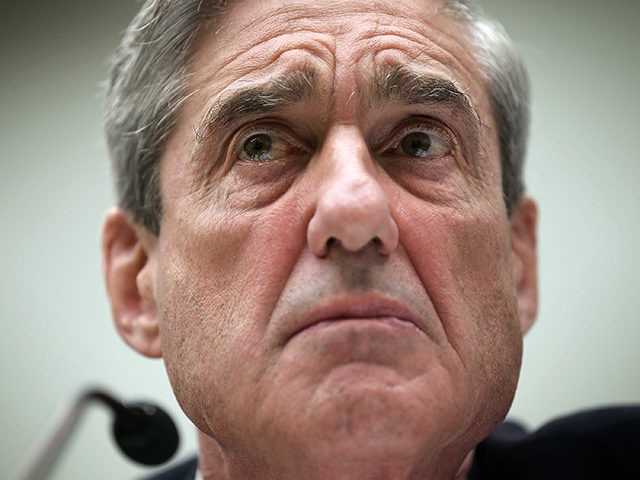Special Counsel Robert Mueller wanted to release the executive summaries of his Special Counsel’s final investigative report into Russian interference in the 2016 presidential election days after U.S. Attorney General William Barr presented its key findings, according to a letter revealed shortly before Barr testified to U.S. senators.
“The introduction and executive summaries of our two-volume report accurately summarize this Office’s work and conclusions,” Mueller wrote in a letter to Barr dated March 27. “The summary letter the Department sent to Congress… did not fully capture our conclusions.”
Barr told lawmakers that he explained to Mueller he would not release information from the Special Counsel’s report “piecemeal,” instead opting to publish it in full once proper redactions were completed. The Justice Department released the 400-page document nearly three weeks later on April 18.
“He argued for putting out summaries of each volume, the executive summaries that had been written by his office — and if not that, then other material that focused on the issue of why he didn’t reach the obstruction question,” Barr said of a phone call between the two men after he received the letter. “I thought summaries, by very definition — regardless of who prepared them — would be under-inclusive and we’d have sort of a series of different debates and public discord over each tranche of information that went out, and I wanted to get everything out at once, and we should start working at that.”
Mueller’s letter was published Wednesday morning shortly before Barr began testifying before the Senate Judiciary Committee. It was first reported on the night before by the Washington Post.
The Post‘s report, which rocked Washington, DC, and gave renewed hope to the cottage industry of Trump-Russia conspiracy theorists, says Mueller quibbled with Barr about nuance in their phone call while ultimately admitting the attorney general did not write anything inaccurate in his four-page preview of the full report, released several weeks later.
The Post omitted the admission of Barr’s accuracy in the article’s headline — “Mueller complained that Barr’s letter did not capture ‘context’ of Trump probe” — and on its homepage, where the featured title reads “Mueller complained to Barr about memo on key findings.”
Reporters Devlin Barrett and Matt Zapotosky bury the rebuttal of their own headline 13 paragraphs into the story:
A day after Mueller sent his letter to Barr, the two men spoke by phone for about 15 minutes, according to law enforcement officials.
In that call, Mueller said he was concerned that media coverage of the obstruction investigation was misguided and creating public misunderstandings about the office’s work, according to Justice Department officials. Mueller did not express similar concerns about the public discussion of the investigation of Russia’s election interference, the officials said. Barr has testified previously he did not know whether Mueller supported his conclusion on obstruction.
When Barr pressed Mueller on whether he thought Barr’s memo to Congress was inaccurate, Mueller said he did not but felt that the media coverage of it was misinterpreting the investigation, officials said. [emphasis added]
The Mueller report conclusively states that no members of then-candidate Donald Trump’s campaign conspired or colluded with Russian nationals during the 2016 presidential election. The most high-profile case of an American citizen duped by Russian propaganda on social media is far-left filmmaker Michael Moore, who marched in a rally allegedly organized by Russian trolls via Facebook.
However, the report contains a second “volume” insinuating obstruction of justice from President Trump, which Democrats have insisted is a “roadmap to impeachment.” Democratic strategist Mark Penn, who previously served in the 2008 campaign of Hillary Clinton, argued that this portion of the investigation — the only portion for which Mueller complained to Barr about “context” — “should not exist at all.”
“Even if you believe Mueller should have been appointed given the swirl of questions kicked up about Russia, Volume 2 of the Mueller report should not exist at all, once investigators determined there was no collusion and they were not issuing any charges,” Penn wrote in The Hill.
Barr’s initial letter to lawmakers giving the key findings of the Mueller Report does state that the document “does not exonerate” President Trump on the issue of obstruction of justice — but that “the evidence developed during the Special Counsel’s investigation is not sufficient to establish that the President committed an obstruction-of-justice offense.” Deputy Attorney General Rod Rosenstein agreed with this conclusion.
This article has been updated to reflect the testimony of Attorney General Barr after its publication. An earlier version mischaracterized a disagreement between Barr and Mueller, incorrectly attributing a statement from the former to the latter.

COMMENTS
Please let us know if you're having issues with commenting.